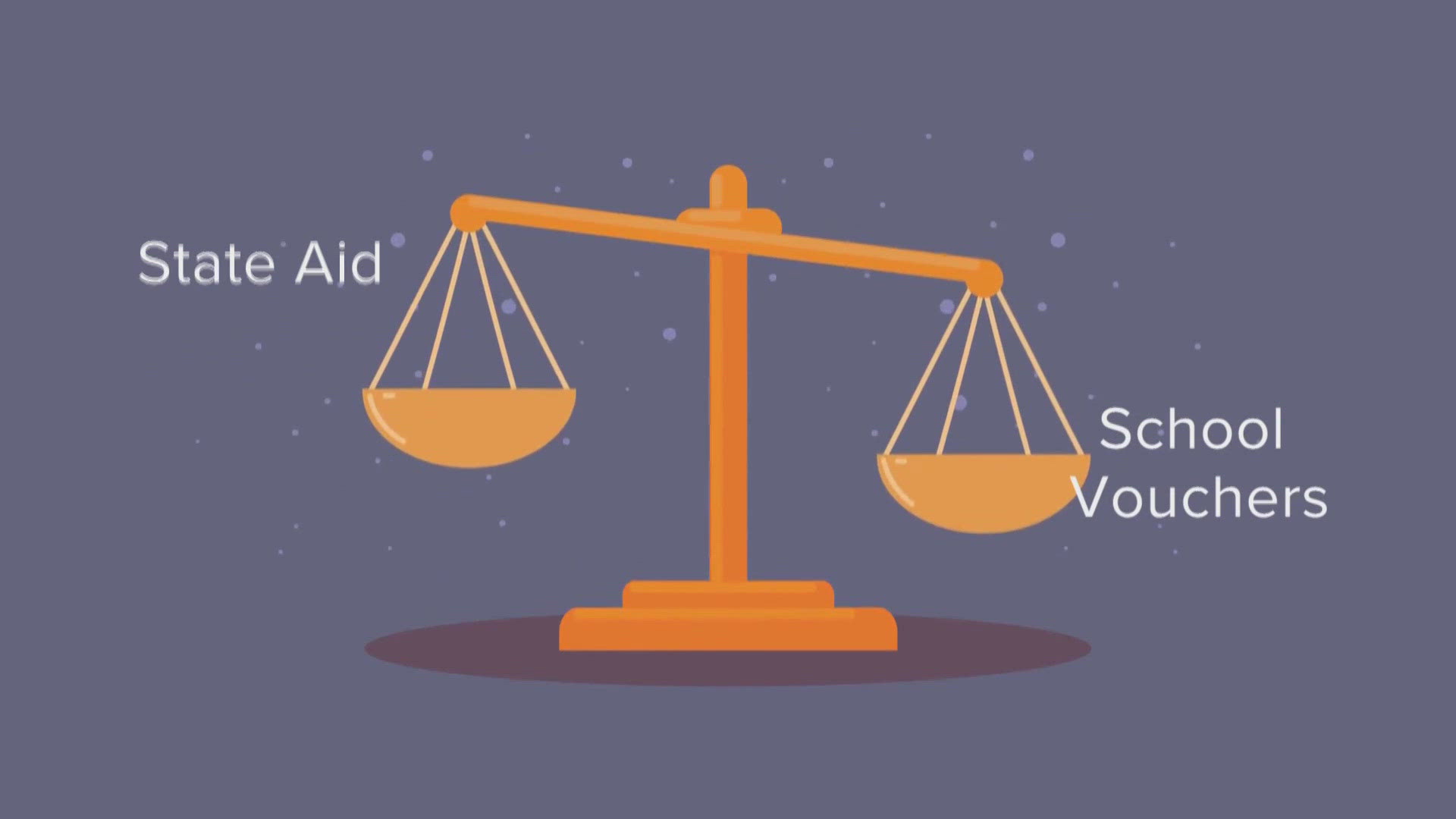A prominent political activist is opening a new front in the battle against Arizona’s private school voucher program. Community organizer Randy Parraz helped lead a historic recall against a prominent elected official a decade ago. Now Parraz is setting his sights on universal Empowerment Scholarship Accounts.
This month, Parraz launched Arizonans for Public Schools, a project funded through the nonprofit Organizing Institute For Democracy. He was joined by 30 educators and parents Tuesday morning at the State Capitol where they delivered mock “voucher scam” awards to legislative leaders and a written proclamation to Governor Katie Hobbs requesting she veto future ESA spending.
“The governor herself said this would bankrupt this state but she didn’t push back hard enough. I can’t sit and watch,” Parraz said.
ESA program serves 75,000 students
Although enrollment numbers dropped the last two weeks, the ESA program has steadily grown this year to more than 75,000 students.
The state projects between $700 and $800 million of public funds will pay for the private and religious education of Arizona students through the ESA program this year. For several years the ESA program was narrowly tailored for mostly special needs students until Republican leaders passed the universal expansion in 2022.
The average ESA is currently about $9,800. Supporters of ESAs point to its dramatic growth as a sign of its popularity.
“School choice is here to stay, and Arizona families are happy about that,” said House Speaker Ben Toma in January.
'Committed to exposing and dismantling' ESAs
The written mission of Arizonans for Public Schools is “exposing and dismantling Arizona’s Private and Religious Schools Voucher Scam.” Parraz, who recently stepped down as Executive Director of the Arizona Education Association, says he will have more flexibility to wage a political battle against ESAs through his nonprofit.
“We need an unprecedented strategy,” he said.
Parraz joins a crowded field.
The AEA, Arizona Democrats and the nonprofit Save Our Schools are also involved in efforts to repeal or reform universal vouchers. In fact, Save Our Schools plans its own event at the State Capitol on Wednesday where leaders will deliver a petition demanding ESA reforms.
“We need voices. We need people in lots of lanes,” Parraz said, regarding other activists.
Republicans have resisted calls for reform
Governor Katie Hobbs is currently in budget negotiations with Republican leaders. Hobbs’ office did not respond to 12News for comment.
Republicans made clear earlier this year they will not entertain voucher reforms. The sponsor of the 2022 voucher expansion, House Speaker Ben Toma, told 12News in January that “by and large” the “state saves money” for every child that switches to an ESA. However, an analysis by the Joint Legislative Budget Committee and a separate analysis conducted by a public school funding consultant show that in most cases the state loses money when a student obtains an ESA.
Parraz made history in immigration fight
In 2011 Parraz co-founded the successful campaign to recall State Senate President Russell Pearce in the wake of the passage of the controversial – and mostly unconstitutional - immigration law known as SB1070. Pearce’s ouster sent political shockwaves throughout the state.
That campaign included a diverse alliance of progressives, conservatives, civil rights activists and business leaders.
Parraz admits he’s still developing a strategy for this new effort but says his immediate priority is to educate voters about the impact of ESAs and to put pressure on state leaders.
Like other voucher opponents, Parraz believes the courts incorrectly ruled on the constitutionality of ESAs.
“No public money can or should be used for private or religious institutions,” Parraz said.
The state constitution prohibits public funds from being “appropriated for or applied to any religious worship, exercise or instruction.” However, an appellate court ruled the ESA program is constitutional because “the ESA is neutral in all respects towards religion and directs aid to a broad class of individuals.” The Arizona Supreme Court agreed with the lower court’s ruling.
Parents, educators appeal to leaders
Parraz has two daughters who graduated from Chaparral High School and a son enrolled in a Valley public elementary school. He was joined by other parents who believe the state is prioritizing ESAs over public schools.
“A billion dollar voucher scam is robbing our future generations,” said Chico Robinson, while holding his 7-month-old daughter.
Zida Robinson, 81, retired from teaching at North High School.
“I see my students who became educators now looking for other jobs or working two or three jobs to survive. Our schools need the ability to pay teachers better,” Robinson said.
Debate over public funding is complicated
Public school funding is expensive and complex.
An ESA new voucher costs the state’s annual general fund between $500 and $8,180. The amount depends on where the student was previously enrolled. One exception is when a charter student takes an ESA. That is a savings to the state's budget of about $850.
Other funding sources contribute to the overall per-pupil funding formula for a student in public schools. They include federal funds such as COVID aid, Title 1 lunch funds and poverty funds. They also include local bond/override funds.
ESA supporters often make their case by comparing the total average amount of those funds ($13,000-$14,000 per student this year) with the total average amount of ESA funds ($7,500 for non-special needs ESA students and $9,800 for all ESA students). They use those comparisons to argue that ESAs actually save taxpayers money.
But there are no direct savings based on those amounts. A portion of the average per-pupil funding total is made up of fixed expenditures. Those expenditures generally do not change when students take ESAs. They include utilities, most local bonds and overrides, and transportation costs.
Up to Speed
Catch up on the latest news and stories on the 12 News YouTube channel. Subscribe today.

